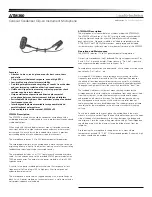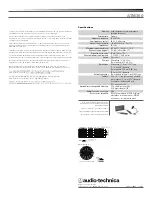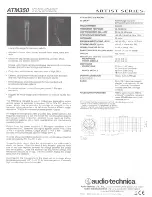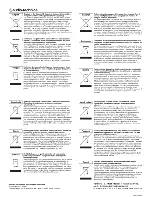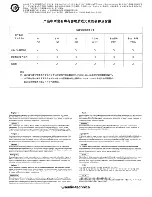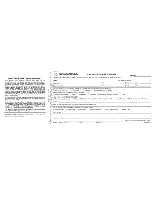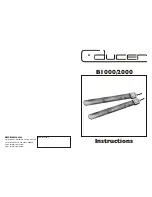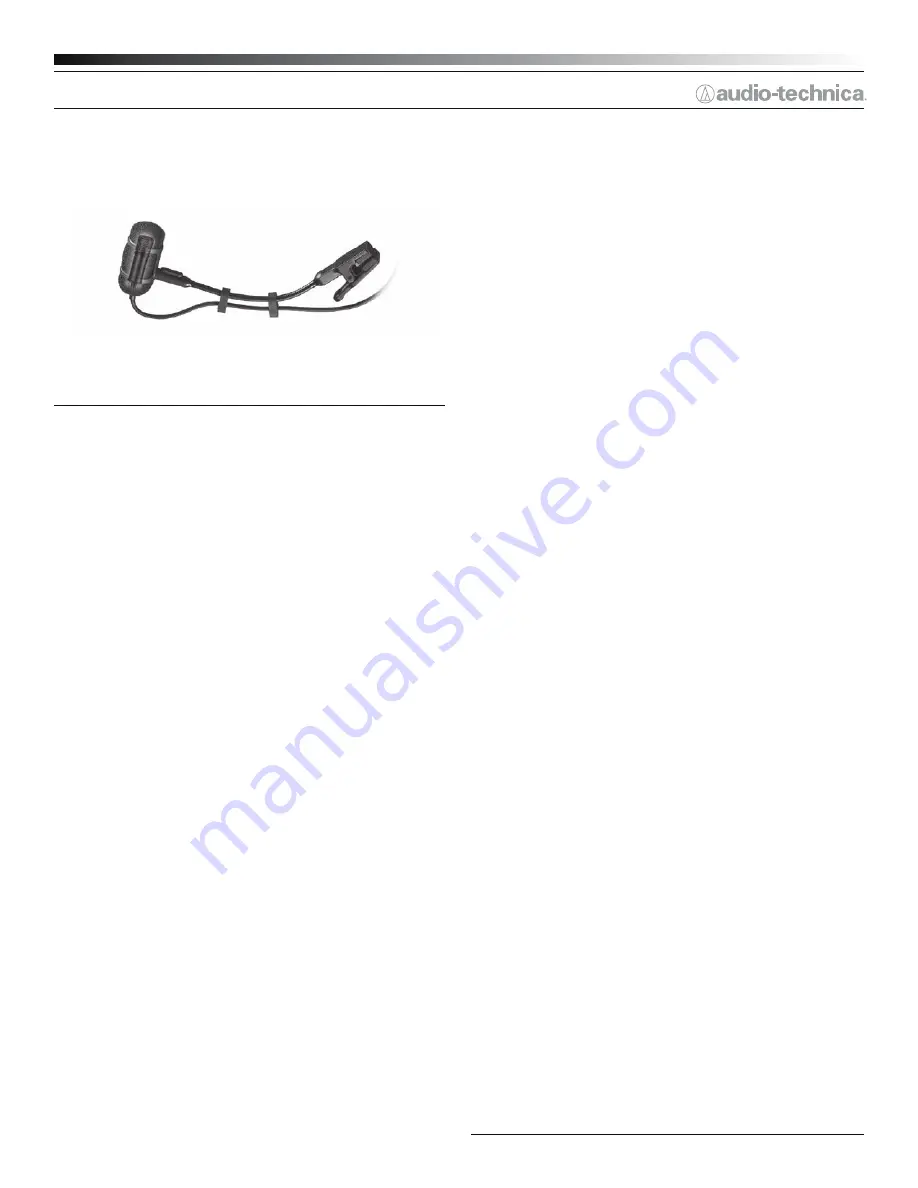
artist series
live sound microphones
ATM350
Cardioid Condenser Clip-on Instrument Microphone
Features
• Attaches to brass, reeds, piano, acoustic bass, snare, toms
and
violin
• Crisp, clear, well-balanced response, even at high SPLs
• Low-profile design for minimum visibility
• Cardioid polar pattern reduces pickup of sounds from the sides
and rear, improving isolation of desired sound source
• UniMount
®
clip permits accurate positioning, provides shock
resistance and protects element
• Unique violin mount permits unobtrusive placement of
microphone between the instrument's bridge and tailpiece
• Switchable 80 Hz high-pass filter minimizes pickup of undesired
low-frequency
sounds
• Interchangeable elements available for hypercardioid and
omnidirectional polar patterns
• Also available in a wireless model, ATM350cW
ATM350
Description
The ATM350 is a fixed-charge clip-on condenser microphone with a
cardioid polar pattern. It is designed for use in professional live-sound and
studio applications.
When used with the included instrument mount, it provides accurate,
consistent pickup of trumpet and saxophone and many other musical
instruments. When used with the included violin mount, it provides
outstanding pickup of violin and other stringed instruments.
The microphone requires 11V to 52V phantom power for operation.
The cardioid polar pattern of the microphone is more sensitive to sound
originating directly in front of the element, making it useful for controlling
feedback and reducing pickup of unwanted sounds.
The microphone includes a 4 m (13.1') permanently attached miniature
cable. Its free end connects to the provided AT8542 power module via a
TA3F-type connector. The output of the power module is a 3-pin XLRM-
type connector.
A switch in the power module permits choice of flat response or low-
frequency roll-off (via integral 80 Hz high-pass filter) to help control
undesired ambient noise.
The microphone is enclosed in a rugged housing with a low-reflectance
black finish. A power module, an instrument mount, a violin mount and a
soft protective pouch are included.
ATM350cW
Description
The microphone is also available in a wireless model, the ATM350cW.
The ATM350cW features a 1.4 m (55") miniature cable terminated with
a locking 4-pin connector for use with Audio-Technica UniPak
®
body-
pack transmitters. No power module is included (or required) with the
ATM350cW. The ATM350cW dimensions, polar pattern and included
instrument mount and violin mount are identical to those of the ATM350.
Operation and Maintenance
The ATM350 requires 11V to 52V phantom power for operation.
Output is low impedance (Lo-Z) balanced. The signal appears across Pins
2 and 3; Pin 1 is ground (shield). Output phase is “Pin 2 hot”— positive
acoustic pressure produces positive voltage at Pin 2.
To avoid phase cancellation and poor sound, all mic cables must be wired
consistently: Pin 1-to-Pin 1, etc.
An integral 80 Hz high-pass filter provides easy switching from a flat
frequency response to a low-end roll-off. The roll-off position reduces
the pickup of low-frequency ambient noise (such as traffic, air-handling
systems, etc.), room reverberation and mechanically coupled vibrations.
To engage the high-pass filter, slide the switch toward the “bent” line.
The included UniMount
®
instrument mount entirely surrounds the
microphone with foam to isolate the microphone from noise transmitted
from the instrument, shield the element against accidental damage,
and provide an efficient wind screen. The flexible arm permits aiming
the microphone in any direction, while a cable strain relief reduces
cable-transmitted noise and cable damage. The rubber grip spring clamp
securely holds the microphone to the instrument without marring the
surface.
To use the included violin mount, place the microphone in the violin
mount’s elastic mic holder. Open the hook & loop fastener; pass the hook
side of the open fastener beneath the strings between the bridge and
the tailpiece. Close the fastener flap around the strings. The microphone
should be on top, with the element facing the bridge (away from the
tailpiece).
Avoid leaving the microphone in the open sun or in areas where
temperatures exceed 110° F (43° C) for extended periods. Extremely high
humidity should also be avoided.

